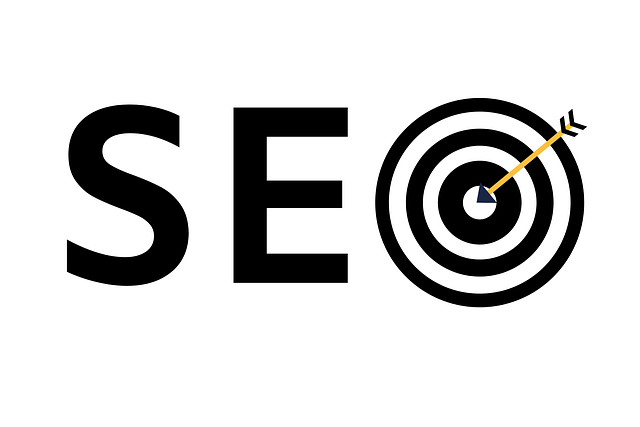The SEO Hands-On Workshop is a comprehensive guide for digital agencies to master search engine optimization (SEO). It covers core principles, including keyword research using tools like Google Keyword Planner and SEMrush, long-tail keyword strategies for higher conversions, and on-page optimization techniques for improved search rankings. The workshop emphasizes off-page SEO through high-quality backlink acquisition from reputable sources, local SEO to target specific geographic areas, and technical SEO aspects such as site speed and schema markup. Through hands-on learning, agencies gain practical skills in analytics tracking with Google Analytics and are prepared to adapt to future trends like AI, voice search, and privacy regulations.
In today’s digital landscape, Search Engine Optimization (SEO) is a game-changer for agencies looking to thrive. This comprehensive guide offers a hands-on workshop on various SEO strategies essential for success. From understanding the basics of keyword research and on-page optimization to mastering technical SEO and building high-quality backlinks, each section provides actionable insights. Learn how to target specific geographic locations with local SEO and effectively measure results using key metrics. Stay ahead of the curve by exploring future trends in this ever-evolving field.
Understanding SEO for Agencies: The Basics

Understanding SEO for Agencies begins with grasping its core principles. Search Engine Optimization (SEO) is a strategic process that involves optimizing websites and content to rank higher on search engine results pages (SERPs). For agencies, this means enhancing online visibility, driving organic traffic, and boosting client engagement. A successful SEO strategy requires a hands-on approach, combining technical optimizations with compelling content creation and strategic link building.
A SEO Hands-On Workshop is an excellent way for agencies to demystify these concepts. By participating in such workshops, agency teams learn practical techniques to analyze keywords, conduct on-page optimization, track analytics, and adapt to algorithm updates. This hands-on experience equips them with the tools needed to deliver effective SEO campaigns, ensuring their clients’ digital properties not only appear but also rank prominently among competitors.
Keyword Research Strategies for Effective SEO

In an SEO Hands-On Workshop, agencies learn that keyword research is a foundational step for any successful SEO strategy. It involves understanding your target audience’s search behavior and identifying relevant keywords they use when looking for products, services, or information related to your industry. Tools like Google Keyword Planner, SEMrush, and Ahrefs can help uncover search volume, competition, and long-tail keyword opportunities. By combining these insights with market research, agencies can create a comprehensive list of target keywords that align with customer intent and business goals.
Effective keyword research strategies also consider long-tail keywords—phrases that are more specific and typically have lower search volumes but higher conversion rates. Incorporating these into content strategies ensures that your agency caters to the precise needs of potential clients, enhancing the likelihood of ranking highly for relevant searches and attracting qualified leads.
On-Page Optimization Techniques: A Comprehensive Guide

In an SEO hands-on workshop, mastering on-page optimization techniques is paramount for agencies aiming to elevate their online visibility. This involves a strategic approach to each webpage, ensuring content is not only engaging but also optimized for search engines. Key practices include keyword research and integration—placing relevant terms naturally within titles, headings, meta descriptions, and body text. This careful placement signals to search algorithms that the page is authoritative on its topic.
Additionally, optimizing images by incorporating descriptive file names and alt tags enhances accessibility and searchability. Proper heading structure (H1, H2, etc.) organizes content hierarchically, making it easier for both users and search crawlers to navigate. Internal linking also plays a crucial role in improving site architecture, allowing agencies to connect relevant pages and distribute link equity, thereby boosting the overall SEO performance.
Off-Page SEO: Building High-Quality Backlinks

Off-Page SEO is a strategic component for agencies aiming to elevate their online visibility, and one of its key aspects is building high-quality backlinks. These links act as votes of confidence from other websites, indicating to search engines that your agency is an authoritative source. In a hands-on SEO workshop, experts often emphasize the importance of acquiring backlinks from reputable and relevant sources. This can include industry-leading publications, influential blogs, or well-established business directories.
Agencies should focus on creating valuable content that naturally attracts links. This could involve conducting in-depth research, offering insightful analysis, or sharing innovative solutions within their niche. By consistently producing high-quality, shareable content, agencies can increase the likelihood of earning backlinks, which, in turn, boosts their search engine rankings and establishes them as thought leaders in their industry.
Technical SEO: Optimizing Website Performance

In the digital landscape, Technical SEO plays a pivotal role in ensuring your agency’s website performs at its peak. This involves hands-on optimization of various technical aspects that influence search engine visibility and user experience. A comprehensive SEO Hands-On Workshop can help agencies identify and rectify issues like site speed, mobile responsiveness, schema markup implementation, and XML sitemap creation. These factors directly impact how search engines crawl and index your site, ultimately affecting your ranking potential.
By addressing technical SEO, agencies can enhance website performance, reduce bounce rates, and improve user engagement. Such optimizations not only benefit the agency’s online presence but also contribute to a better overall digital experience for clients. This, in turn, fosters stronger client relationships and opens doors to new business opportunities.
Local SEO for Agencies: Targeting Geographic Locations

Local SEO is a powerful strategy for agencies looking to attract clients within specific geographic locations. By targeting local areas, agencies can enhance their online visibility and connect with potential customers in their vicinity. This approach involves optimizing websites and listings to rank higher in local search results, ensuring that when folks search for services in their city or region, the agency’s name, contact details, and offerings are front and center.
A hands-on workshop on SEO can be an excellent platform to teach agencies these local optimization techniques. Through practical exercises, participants can learn how to conduct thorough keyword research specific to their target locations, craft compelling local business listings, and leverage Google My Business to its fullest potential.
Measuring and Analyzing SEO Results: Key Metrics to Track

Measuring and analyzing SEO results is an essential part of any SEO hands-on workshop, as it provides agencies with tangible insights into their strategies’ effectiveness. Key metrics to track include organic traffic, which measures the number of visitors coming from search engines, and conversion rates, indicating how well the website is achieving its business goals.
Google Analytics is a powerful tool for monitoring these metrics, offering data on keyword rankings, bounce rates, average session duration, and more. Tracking these factors helps agencies identify what’s working, pinpoint areas needing improvement, and make data-driven decisions to optimize their SEO strategies over time.
Future Trends in SEO: Staying Ahead of the Curve

As technology continues to evolve, so does the world of search engine optimization (SEO). Future trends in SEO are set to reshape how we approach digital marketing, demanding that agencies stay ahead of the curve. One emerging trend is the increased reliance on artificial intelligence and machine learning algorithms, which can analyze vast amounts of data to predict user behavior and optimize content accordingly. Voice search technology is also gaining traction, with more users leveraging voice assistants for their queries, necessitating a focus on optimizing content for conversational language.
Additionally, privacy regulations such as GDPR and CCPA are setting new standards for data collection and usage, impacting SEO strategies. Agencies will need to adapt by prioritizing ethical data practices and enhancing user consent management. The rise of mobile-first indexing and the importance of core web vitals further highlight the necessity for hands-on workshops that equip professionals with the skills to optimize websites for speed, usability, and search engine visibility.
